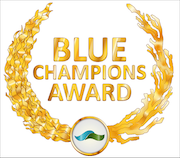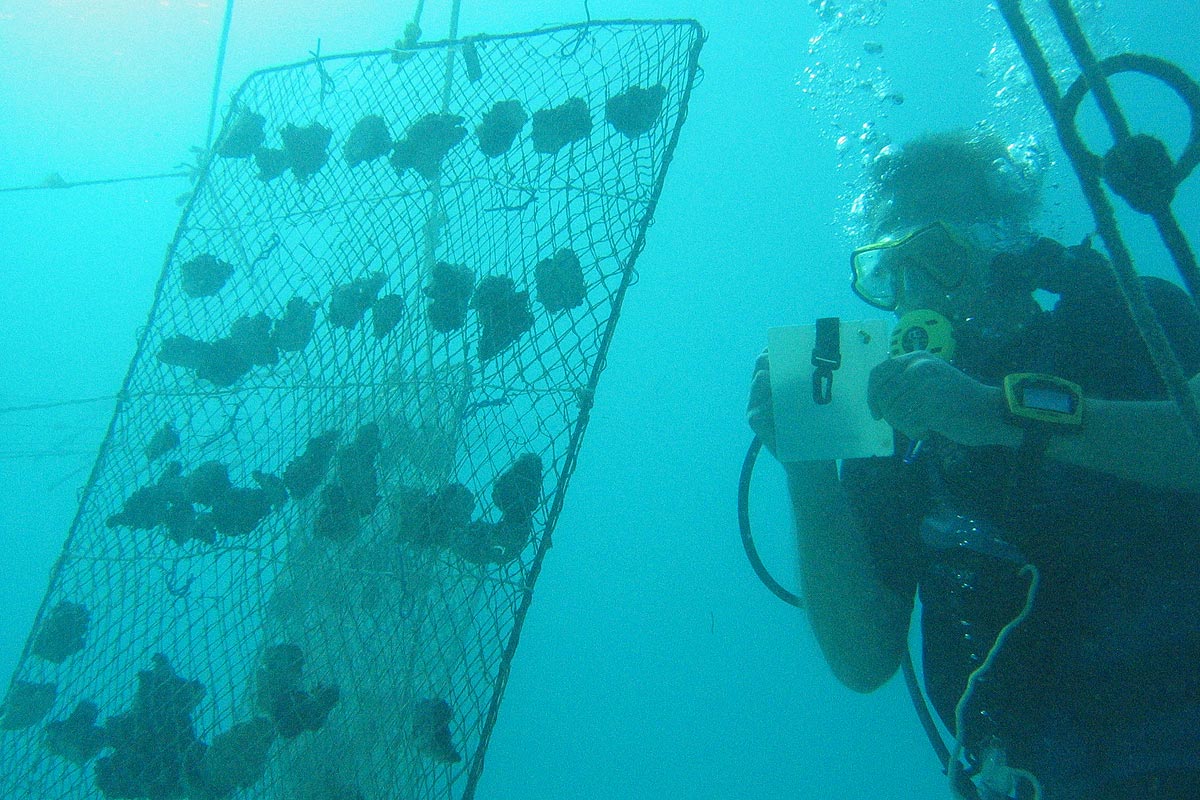January 14 - Coral Farming for Aquarium Trade
24.01.2014
In comparison with sponge farming, the cultivation of corals allows farmers to become self-sufficient sooner, and generates a higher income. This has been the experience of our project partner, MERIP. MERIP has so far put in place twenty coral farms to sustainably cultivate corals for the ornamental trade.
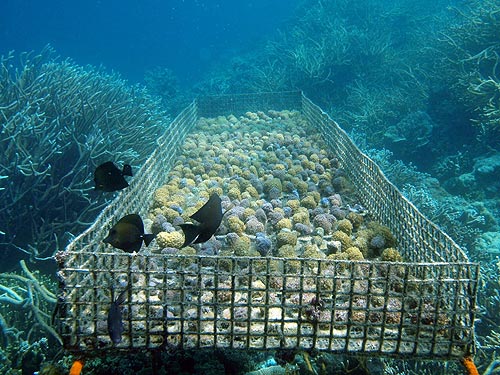 Gonlopora Coral Table in Phonpei Micronesia
Gonlopora Coral Table in Phonpei Micronesia
In light of various recent technological developments that have made maintaining saltwater aquariums easier, the market for such aquariums are growing in Europe, the U.S., and increasingly Asia. Unfortunately, many of the most popular fish, plants, corals and other aquarium dwellers are exclusively collected from the wild, thus jeopardizing these populations. Live products for the ornamental trade can and should instead be farmed sustainably and ecologically.
We fear that a worldwide ban on the sale and ownership of live corals would not be enforceable. Where there is demand, there are usually also poachers. With our coral farms, we work toward relieving the pressure on the populations in the wild and developing an alternative for aquarium owners.
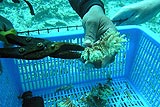
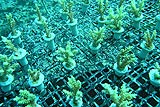
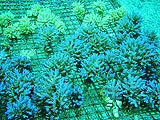 in Micronesia: Fragmenting
in Micronesia: Fragmenting![]()
![]()
![]() Seedlings
Seedlings![]()
![]()
![]()
![]()
![]()
![]()
![]()
![]()
![]()
![]()
![]()
![]() Product
Product
We successfully tested the cultivation of local corals back in 2013. Now that we have lined up funding, MERIP will train our team in Zanzibar before the end of 2014.
As is the case with sponges, farming corals is quite simple: small cuttings are removed from the mother colony and re-planted – a process called „fragmentation.“ If done right, mother colonies can be cropped repeatedly without damage or impact on the wild crops. Each farmer can maintain his own stock. This allows for a continuous supply and ensures the quality of the farmed corals and invertebrates.
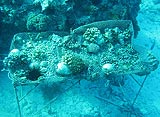
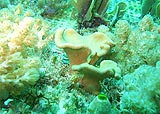
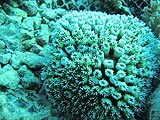
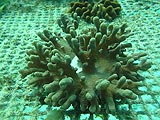
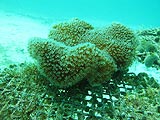
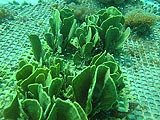
Coral-Farming Tests in Jambiani
Coral farming can also be used in connection with the reforestation of damaged coral reefs. Through our separate reef ball project we foster the necessary know-how for that. However, our primary goal in the area of coral farming remains the development of alternative income sources for families and small businesses, and their transition to the self-sufficient operation of coral farms.

